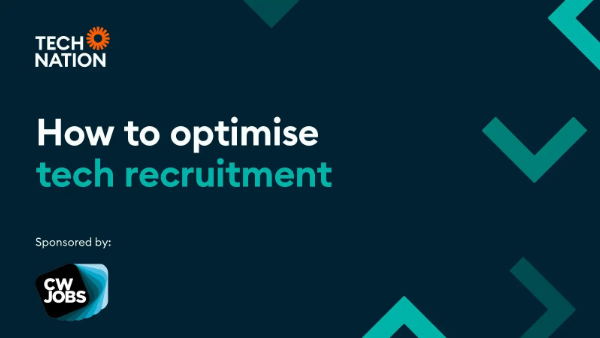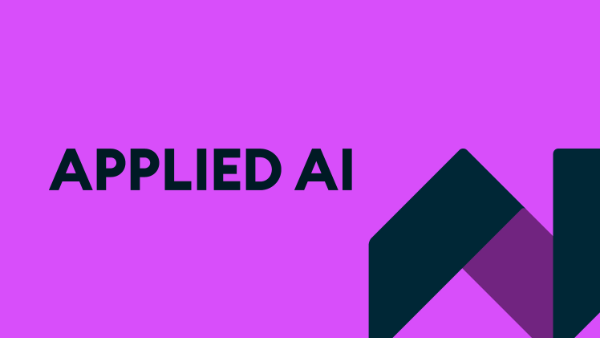13 Books Every Sustainability Leader Needs on their Bookshelf

Today, prioritising sustainability begins at the top - as companies across all industries now understand just how critical it is to pay attention to environmental, social, and governance (ESG) issues.
The field of sustainability (and climate change in particular) is constantly evolving - meaning sustainability leaders need to devote their efforts to advance their skills and knowledge.
Reading books is a fantastic way to learn more about the field and keep up with new trends and developments.
With this in mind, we spoke to our Tech Nation network to create a list of must-read books for all sustainability professionals. We hope you like them!
The New Climate War: by Michael E. Mann
The New Climate War: The Fight to Take Back Our Planet is the first book on Julie Martin - who works on our Net Zero climate tech programmes - list.
And understandably so, as the book was shortlisted for the Financial Times and McKinsey Business Book of the Year Award, and one of The Observer’s ‘Thirty books to help us understand the world’.
Over 70% of global emissions come from the same 100 organisations, but fossil-fuel companies have taken no responsibility. Instead, they have blamed individuals in a 30-year campaign.
But renowned scientist Michael E. Mann argues that all is not lost. He draws the battle lines between the people and the polluters ― fossil-fuel companies, right-wing plutocrats, and petro-states ― and outlines a plan for forcing our governments and corporations to wake up and make real change.
How to Save Our Planet: The Facts by Mark Maslin
How can we save our planet and survive the 21st century? How can you argue with deniers? How can we create positive change in the midst of the climate crisis?
Professor Mark Maslin has the facts we need to protect our future.
Thankfully, global awareness of climate change is growing rapidly, as science has proven that our planet is facing a massive environmental crisis. How to Save Our Planet is a call to action, promising to equip readers with the knowledge needed to make real change.
Hot Mess by Matt Winning
Dr Matt Winning is a stand-up comedian and environmental economist with a PHD in climate change policy.
You’ve probably noticed that we’re facing a global climate emergency - but does the end of the world need to be so depressing? Hot Mess: What on Earth Can We Do About Climate Change? aims to both lighten the mood and enlighten readers on climate change.
If you care about climate change, but aren't doing much about it, this book helps readers understand what the main causes of climate change are, what changes are needed, and what they can (and cannot) do about it.
How to Avoid a Climate Disaster by Bill Gates
Bill Gates has spent a decade investigating the causes and effects of climate change - with the help of experts across a number of fields - focussing on what must be done to stop the planet's slide toward certain environmental disaster.
In How to Avoid a Climate Disaster: The Solutions We Have and the Breakthroughs We Need, Gates not only explains why we need to work toward net-zero emissions of greenhouse gases, but also what we need to do to achieve it.
Gates offers a concrete, practical plan for achieving the goal of zero emissions, suggesting policies governments should adopt, and what we as individuals can do to keep our government, employers, and ourselves accountable.
The Climate Book by Greta Thunberg
We still have time to change the world. From Greta Thunberg, the world's leading climate activist, comes the essential handbook for making it happen.
In The Climate Book, Greta Thunberg has gathered wisdom from over a hundred experts to equip us with the knowledge we need to combat climate disaster. Julie Martin says: “I really like the way it's structured.”
Greta also shares her own stories of demonstrating and uncovering greenwashing around the world, revealing how much we have been kept in the dark about.
Once we are given the full picture, how can we not act?
Drawdown by Paul Hawken
A group of leading researchers, scientists and policymakers from across the globe have come together to Drawdown: The Most Comprehensive Plan Ever Proposed to Reverse Global Warming to offer realistic and bold solutions to climate change.
If the solutions and techniques in Drawdown - from revolutionising how we produce and consume food to educating girls in lower-income countries - are deployed collectively and globally over the next 30 years, they wouldn’t just slow the earth's warming, but reach drawdown. So, what are we waiting for?
Regeneration by Paul Hawken
The dangers of climate change and a warming world have been in the public eye for 50 years. For three decades, scientists and the UN have urged us to address future existential threats.
Paul Hawken has flipped the narrative, bringing people back into the conversation, showing that addressing current human needs rather than future threats is the only path to solving the climate crisis.
From land to ocean, food to industries - Regeneration: Ending the Climate Crisis in One Generation proposes an extensive list of collective actions that can reverse the overheating and degradation of our planet.
All the solutions, techniques, and practices are doable and science-based, offering a precise course of action to take.
There is No Planet B by Mike Berners-Lee
There Is No Planet B attempts to answer the questions, "How can we avoid climate disaster?” and “What should we do first?”.
Although first published in 2019, the book has been updated in light of the pandemic and growing concerns about global warming.
Brimming with facts, this book provides a big picture perspective as well as practical ideas for anyone interested in protecting our planet.
Let My People Go Surfing by Yvon Chouinard
This book helps readers rethink what’s possible.
Yvon Chouinard - legendary climber, businessman, environmentalist, and founder of Patagonia, Inc.'s long-awaited memoir shares the persistence and courage that have gone into being head of one of the most respected and environmentally responsible companies on earth.
From his youth as the son of a French-Canadian handyman to the thrilling climbing expeditions that inspired his innovative designs for Patagonia, Inc’s sport's equipment, Let My People Go Surfing is the story of a man who brought doing good and having grand adventures into the heart of his business life.
A book for entrepreneurs and outdoor enthusiasts alike.
The Story of More by Hope Jahren
Hope Jahren is an award-winning scientist and best-selling author.
At just 210 pages, The Story of More is a powerful short read — but it’s Jahren’s brilliant conversational writing style that makes this book shine.
This book is Jahren’s open letter to humanity, which shares both her personal thoughts on how we got to climate change, the science to back it up, and where we can go from here.
Our Next Evolution by Laura Candrella
Laura Calandrella is a leadership strategist and consultant who began her career as a conservation biologist.
In Our Next Evolution, Calandrella offers a unique point of view on what it takes to effect lasting change within organisations — not only technical challenges, but people challenges too.
The Green Startup by Juliet Davenport OBE
The Green Startup is an essential toolkit for modern-day entrepreneurs - as businesses and startups need to work harder than ever before to operate in a greener, more sustainable way, for ourselves and the planet.
Environmental trailblazer Juliet Davenport OBE leads us through the most pressing questions facing any company so you can do just that.
From how to fuel the business to hiring ethically and how to market sustainably to delivering your product in an environmentally friendly way.
This book not only answers these questions, but showcases experts and brilliant business innovators who are showing why green businesses can even be beneficial for the planet. Go figure.
Green Giants by Freya Williams
Freya Williams, an early pioneer of the modern sustainable business movement, discovered six factors responsible for the overwhelming success of nine socially responsible companies — including Chipotle, General Electric, and Unilever — who turned sustainability into billion-dollar businesses.
Through research, interviews, and anecdotes, Williams identifies six common denominators from these companies, in turn offering a sustainability blueprint anyone can follow.


